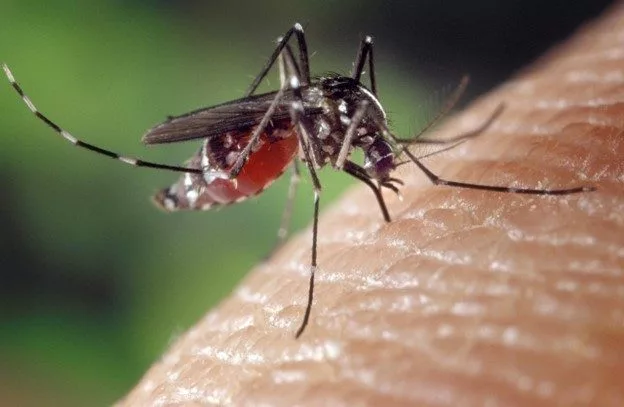As the warm months roll in, Central Oregonians embrace outdoor adventures, backyard barbecues, and evenings by the river. But with summer’s arrival also comes a persistent pest: mosquitoes. Central Oregon is home to several mosquito species, including Aedes vexans, a common variety known for its aggressive biting behavior that is capable of spreading West Nile Virus and Western Equine Encephalitis. Unlike some species that prefer stagnant water, Aedes vexans can breed in temporary pools, which makes them resilient in the high desert climate.
In the Cascade Mountains, Aedes communis can be found in great numbers; this species is known to bite during the day, though they are more persistent at night.
In areas around Prineville, large numbers of Anopheles freeborni can be found, which can carry western equine encephalitis which has caused sporadic outbreaks of disease in horses and people since the 1930s.
Learn more about the kinds of mosquitoes we find in Oregon: Oregon Mosquito and Vector Control Association
Health Risks Associated with Mosquitoes
Though cases of West Nile Virus remain rare in Deschutes County, it’s important to take precautions as symptoms range from mild fever to severe neurological complications. In 2024, 21 mosquito pools tested positive for West Nile Virus in Oregon.
Additionally, Jackson County recently detected the Aedes aegypti mosquito, an invasive tropical species that is known for its aggressive biting behavior and ability to transmit diseases such as dengue, yellow fever, chikungunya, and Zika virus. Risk of disease transmission remains low.
Prevention Tips for Residents
Protecting yourself from mosquito bites is the best way to reduce the risk of exposure to mosquito-borne disease. Reduce your risk of mosquito bites by following these simple steps:
- Eliminate standing water: Dump out containers that collect rainwater, refresh pet bowls frequently, and keep gutters clear to prevent water buildup.
- Use protective barriers: Window screens, long sleeves, and insect repellent (with DEET or picaridin) can help keep mosquitoes away.
- Time outdoor activities wisely: Mosquitoes are most active during dawn and dusk, so consider adjusting your schedule for outdoor fun.
- Read more here: Mosquito Control | Deschutes County Oregon
Community Efforts to Manage Mosquito Populations
Central Oregon has two programs that monitor and manage mosquito populations – residents can support their efforts by reporting mosquito hotspots.
In southern Deschutes County, the Four Rivers Vector Control District provides mosquito management services. Residents within this district can report mosquito complaints and request treatment. Additionally, Crook County Vector Control plays a vital role in mosquito management. They use an Integrated Vector Management (IVM) approach, which includes surveillance, source control, and public education to minimize mosquito-related health risks.
Looking Ahead
While mosquitoes are an inevitable part of summer in Central Oregon, awareness and prevention can significantly limit their impact. Staying informed, taking proactive steps, and working together as a community can help ensure that these buzzing pests don’t ruin outdoor adventures.
As the temperatures rise, take precautions to enjoy all that Central Oregon has to offer—without the itch!






